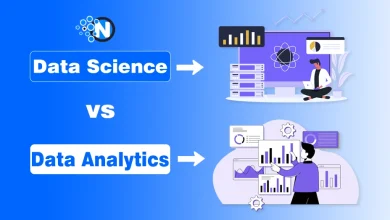The Importance Of Technological Advancements In Third World Countries- Everything You Must Know

While developed countries have embraced technological innovations for decades, third-world countries have lagged in this aspect. However, recent years have seen a significant change in this trend, with many third-world countries making substantial technological advancements.
This article will explore the importance of technological advancements in third-world countries and everything you need to know about this topic.
Economic Growth
In third-world countries, technological advancements can boost the economy by creating jobs, increasing productivity, and improving efficiency. This is particularly important because most third-world countries rely heavily on agriculture and other primary industries, which can benefit greatly from technological advancements.
Access to Information and Communication
One of the most significant benefits of technological advancements in third-world countries is increased access to information and communication. With the rise of mobile technology, many third-world countries have seen a surge in internet usage, allowing people to connect with others from different parts of the world, access online education, and access critical information that can help them make better decisions.
Healthcare Advancements
Technological advancements can play a crucial role in improving healthcare in third-world countries. With access to cutting-edge medical technologies, healthcare professionals can diagnose and treat diseases more effectively, ultimately saving lives. Additionally, telemedicine and other healthcare-related technologies can help healthcare professionals reach patients in remote and underserved areas, improving access to care for those who need it most.
Environmental Sustainability
Technological advancements can help these countries adopt sustainable practices and mitigate environmental problems. For instance, renewable energy technologies like solar and wind power can aid in lowering carbon emissions while decreasing dependency on fossil fuels.
Improved Education
Technological advancements have also revolutionized education in third-world countries. With online resources and e-learning platforms, students can access quality education, even in areas with no physical schools or universities. Additionally, technology can help educators develop better teaching methods and improve the overall quality of education.
The Need For Artificial Eloquence In Developing Countries
Third-world countries, also known as developing countries, face unique challenges when it comes to conducting business. These challenges include a lack of infrastructure, political instability, and limited access to capital. However, blockchain technology can help address some of these challenges and provide a foundation for economic growth.
One area where blockchain technology can be particularly useful is in the financial sector. This can make it difficult for businesses to access capital and for individuals to participate in the formal economy. Blockchain technology can help bridge this gap by providing a secure and transparent platform for financial transactions. By using blockchain technology, businesses can access a wider pool of investors and lenders, while individuals can participate in the financial system without relying on traditional banks.

Another area where blockchain technology can be useful is supply chain management. By using blockchain technology, businesses can track their products from the point of origin to the point of sale, ensuring that goods are not lost or stolen and that quality is maintained throughout the supply chain.
In many developing countries, corruption is a major barrier to economic growth. By using blockchain technology, governments can create transparent systems that are resistant to tampering or fraud, reducing opportunities for corruption and increasing trust in public institutions.
Blockchain For The Growth Of Global Nations
Blockchain technology can be induced the growth of developing countries in several ways. Here are some potential ways that blockchain can be used to promote growth in these countries:
Access to finance
In many developing countries, small businesses and entrepreneurs have limited access to finance. Blockchain-based platforms can enable peer-to-peer lending, micro-financing, and crowdfunding, allowing these businesses to access capital more easily.
Identity verification
In many developing countries, a lack of reliable identity verification systems can create barriers to accessing services such as healthcare and financial services. Blockchain-based identity verification systems can enable individuals to securely and verifiably prove their identity, making accessing these services easier.
Corruption prevention
Corruption is a major problem in many developing countries and can hinder economic growth. Blockchain technology can be used to create transparent systems that are resistant to tampering or fraud, reducing opportunities for corruption and increasing trust in public institutions.
Remittances
Many developing countries rely on remittances from workers living abroad. Blockchain-based platforms can enable faster, cheaper, and more secure remittance transactions, allowing more money to reach the intended recipients. Moore crypto exchanges like the bitcoin loophole are likely to expand trades when blockchain technology has flourished in third-world countries.
Agriculture
Agriculture is a key sector in many developing countries, and blockchain technology can be used to improve the efficiency and transparency of agricultural supply chains. For example, blockchain-based systems can enable farmers to sell their products directly to consumers, bypassing intermediaries and reducing costs.
Overall, blockchain technology has the potential to promote growth and development in developing countries by enabling access to finance, improving supply chain management, facilitating identity verification, preventing corruption, improving remittance transactions, and improving agricultural supply chains. However, to fully realize these benefits, policymakers and businesses must carefully consider each country’s specific needs and challenges and develop tailored solutions that leverage the unique strengths of blockchain technology.
Final Words
In conclusion, technological advancements have far-reaching benefits in third-world countries, from driving economic growth to improving healthcare, education, and environmental sustainability. As more third-world countries embrace technological innovations, we can expect significant progress in many aspects of life, ultimately improving the lives of millions of people worldwide.
Blockchain technology can be a powerful tool for promoting economic growth and development in third-world countries. By leveraging this technology, businesses can access new sources of capital, improve supply chain efficiency, and promote transparency and accountability. As such, policymakers and business leaders in these countries must explore the potential of blockchain technology and other emerging technologies to help overcome their unique challenges.




